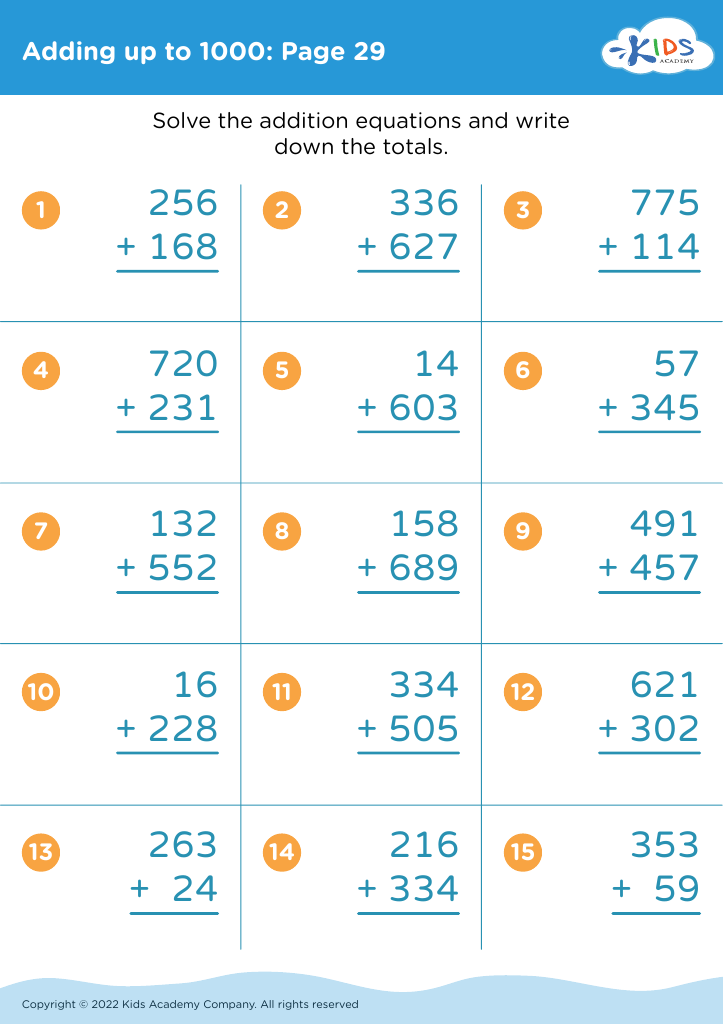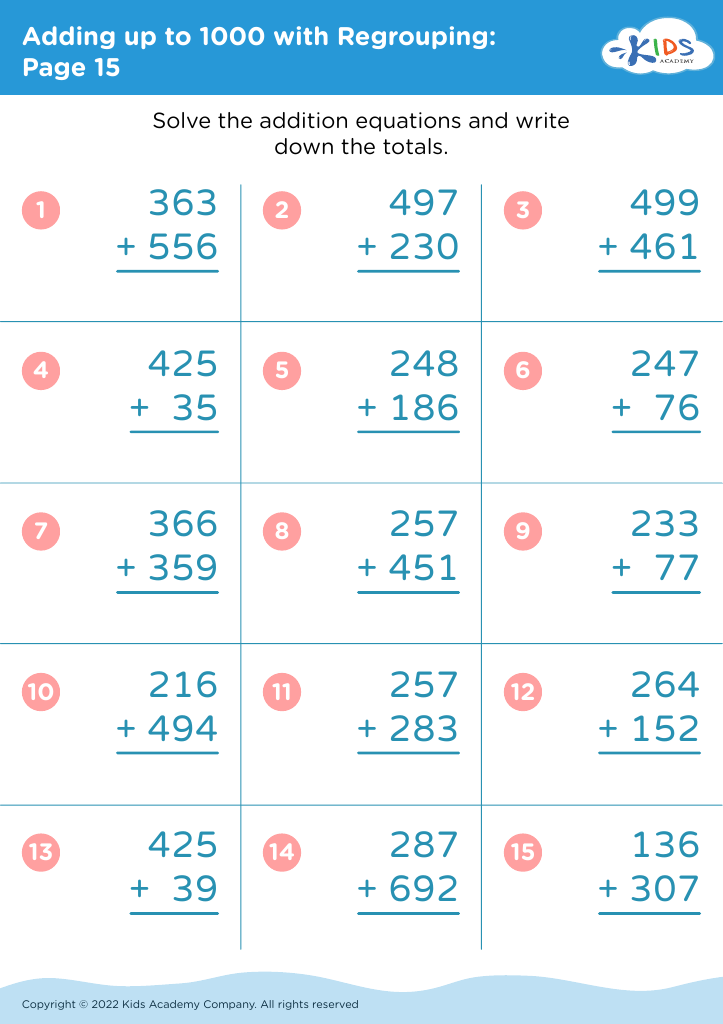Time conversion skills Addition & Subtraction Worksheets for Ages 7-9
3 filtered results
-
From - To
Enhance your child's understanding of time with our Time Conversion Skills Addition & Subtraction Worksheets designed specifically for ages 7-9. These engaging worksheets provide a fun and interactive way for young learners to develop essential math skills by practicing time operations such as converting hours into minutes and vice versa. Our carefully crafted activities will reinforce their addition and subtraction abilities while fostering a solid grasp of time concepts. Perfect for home or classroom use, these worksheets make learning about time exciting, ensuring your child builds confidence as they master crucial math skills. Download and start your journey toward time mastery today!
Time conversion skills along with basic addition and subtraction are essential for children aged 7-9, laying the groundwork for effective problem-solving and critical thinking. At this age, children are increasingly interacting with clocks and schedules, making it vital for them to understand concepts such as hours, minutes, and how to convert between them.
Understanding time promotes head-on engagement with mathematical concepts, reinforcing their addition and subtraction skills. For example, converting from hours to minutes can create practical scenarios where children need to add or subtract time intervals, such as calculating the duration between two activities or figuring out how many minutes they have left before bed.
Moreover, time management is a crucial life skill. Mastering conversions allows children to become more independent and responsible, enabling them to manage their schedules, complete homework on time, and allocate leisure activities effectively.
Parents and teachers should emphasize this skill set because early proficiency fosters confidence and motivation in mathematics, leading to better academic performance as they progress in their education. Overall, these foundational skills not only enhance cognitive development but also prepare children for real-world applications, making them competent, independent learners.



















